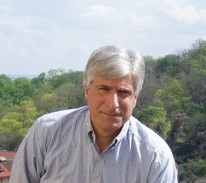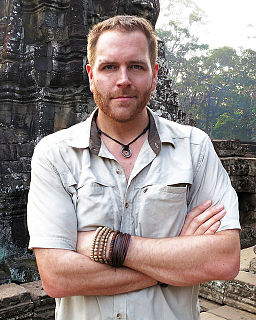A Quote by Sarah Parcak
What satellites help to show us is we've actually only found a fraction of a percent of ancient settlements and sites all over the world... It's the most exciting time in history to be an archaeologist.
Related Quotes
All over the world, we're finding out that, you know, whether it's Egypt or Syria or Central America, what satellites are showing is that there are hundreds, if not thousands, of previously unknown settlements all over the world, and what archaeology does, it helps us to understand this common humanity that we have.
When I wrote 'The Alexandria Link,' I discovered that we are only aware of about 10 percent of the knowledge of the ancient world. In the ancient world, most of the knowledge was destroyed. Every emperor of China who came in wiped out everything that came before them, to the point that the country completely forgot its past.






























